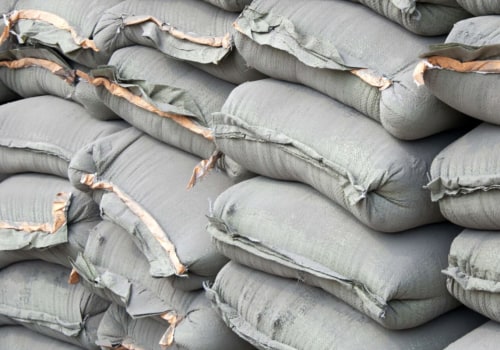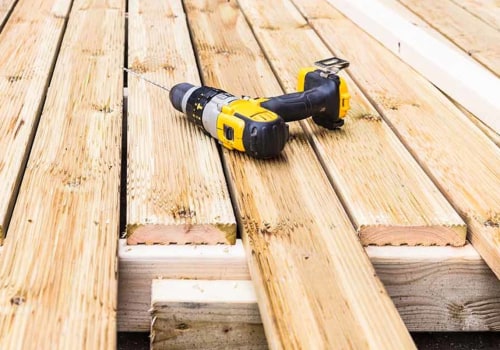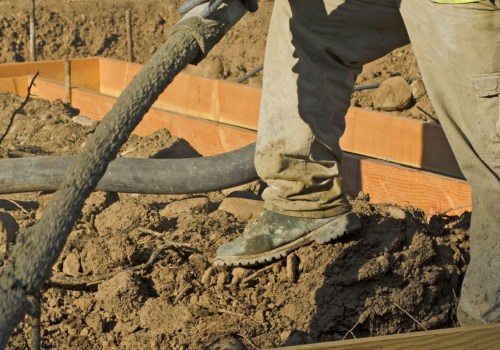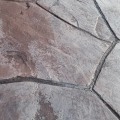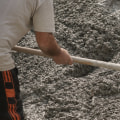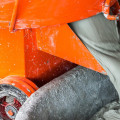Pouring concrete in the rain can compromise its strength, increasing the tendency for dust and scale to develop. After the damage is done, it can be difficult to grind and will often ruin the appearance of the finished surface. Surprisingly, yes, you can pour concrete in the rain. Concrete does not dry out, it cures. in the rain can compromise its strength, increasing the tendency for dust and scale to develop. After the damage is done, it can be difficult to grind and will often ruin the appearance of the finished surface. Surprisingly, yes, you can pour concrete in the rain. Concrete does not dry out, it cures.
Curing is a chemical and not a physical reaction, so rainwater will not kill concrete. Considering that concrete can be cast and cured under water, a little rain on your property will normally not hurt a. Rain falling on newly laid concrete can damage the surface and compromise a level, floating finish. Worse, if too much additional water is introduced into the concrete mix, this can result in weak concrete overall.
Heavy rainfall can cause problems for freshly poured concrete, as it can remove some of the cement from the mix. This can weaken the surface of the concrete, causing it to have a smoother consistency and decrease the strength of the concrete. Many people ask if you can safely pour ready-mixed concrete in the rain. The answer is yes, it is absolutely possible to pour rain, but ideally avoid.
Rain presents challenges, so it doesn't always mean that your schedule is outside the window, as long as you take appropriate action. Can concrete be poured in the rain? Yes, but it's not ideal. Due to the chemical composition of concrete, pouring in the rain can cause complications. If possible, you should have a “rain control” when it comes to concrete.
Yes, it is possible to pour concrete in the rain, although it is not recommended. Rain presents challenges, but it doesn't always mean you need to reschedule it as long as you take the right action. Unfortunately, as we move into winter, wet weather and storms tend to become more frequent. It's not always realistic to plan your concrete pour for a perfectly clear day and you may have tight deadlines to meet, making pouring concrete in the rain inevitable.
In Britain, it rains for an average of 156.2 days a year. This complicates things a bit for concrete finishes working abroad, trying to complete their projects on time without being stopped. In addition to being unpleasant to work with, rain affects the structural integrity of concrete, which can have chain effects for your projects and your business. It is not recommended to pour concrete in the rain, but sometimes it is inevitable, so we have prepared a useful guide.
The fact that it starts to rain during or shortly after a concrete pour does not necessarily mean that your project is doomed to failure. It all has to do with time and at what stage of the curing process the concrete is. If rain occurs when concrete is cool (approximately 2-4 hours after mixing), the surface must be protected from rain. If the finishing process was completed recently, rainwater may not cause damage, as long as the surface is not worked and the slab is not touched.
If the concrete has hardened to the point where it is ready to groove and grind (usually 4 to 8 hours after mixing), rain damage is no longer a concern. While dry weather and smart planning are always recommended for any new concrete installation, it is not a necessity. If another concrete contractor is carrying out the ready-mix concrete installation on your behalf, you can ask them how they plan to prepare for the eventuality of rain. Let's say you just poured concrete outside, but find out that you will soon have a weather warning.
Curing is a chemical reaction that takes place over the life of concrete and is what gives concrete the ability to cure underwater. By supplying ready-mixed concrete in London, you can never be sure of the weather; rain may fall, sun may shine and in winter months your construction site may be affected by cold temperatures. When hydration occurs; a chemical reaction between cement and water; concrete hardens and therefore becomes stronger. If this is not possible; it is possible to pour concrete in the rain; provided that you take appropriate precautions.
It is therefore essential to ensure that your ready-mixed concrete is adequately covered during pouring process and after that; if you want to avoid permanent damage due to rainwater. If it starts raining during pouring; be sure to be prepared with plastic sheets and wood; build shelter on fresh concrete. This could also happen during curing process; when temperature of concrete must be maintained for approximately 48 hours; ensure optimum strength understanding why concrete can be difficult in rain just as important as knowing risks of pouring in rainy weather only drawback that if stagnation occurs; example on surface; lead some discoloration don't afraid Colorado's spring rains; get out winter well schedule repair or replacement today.
